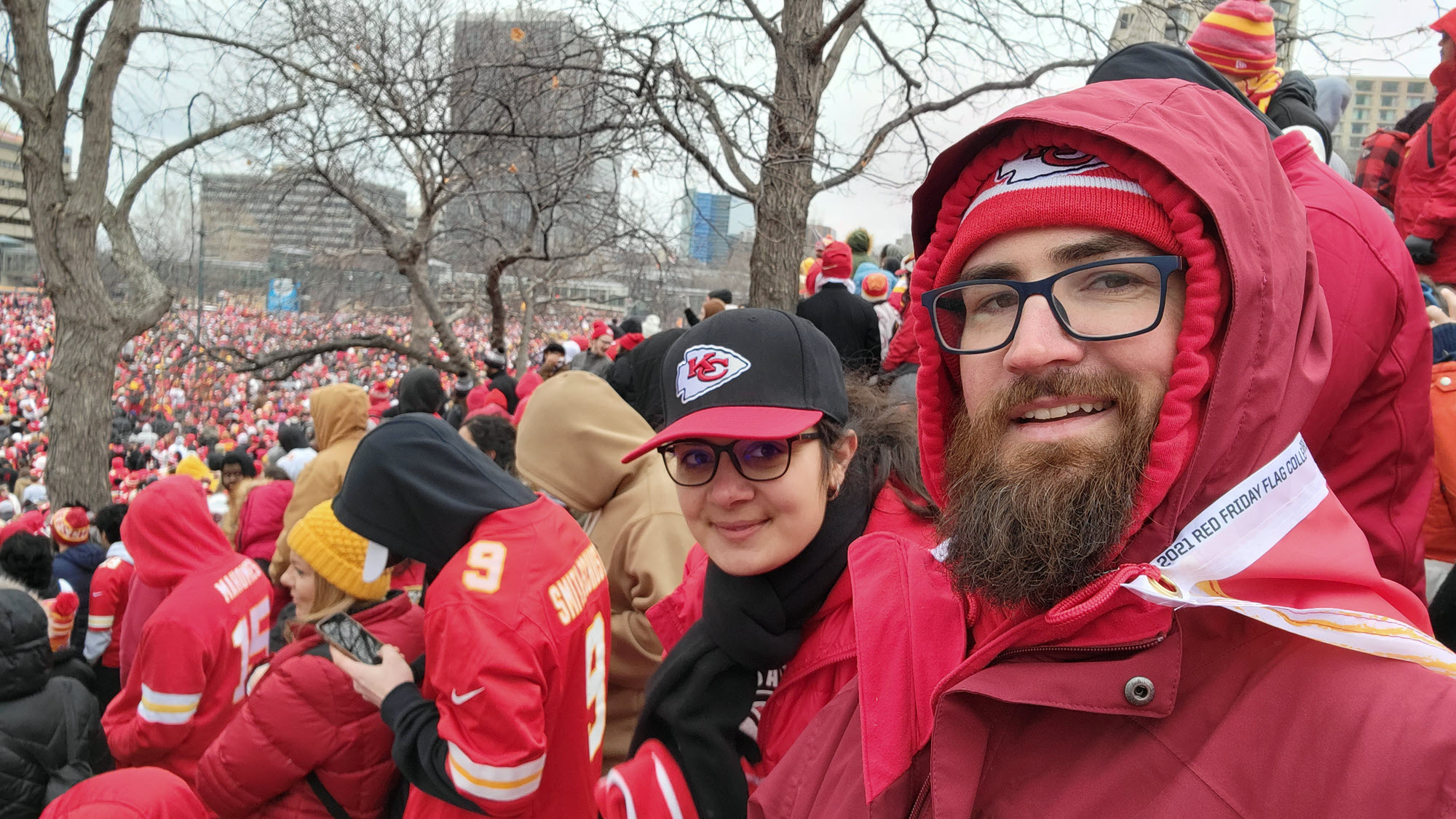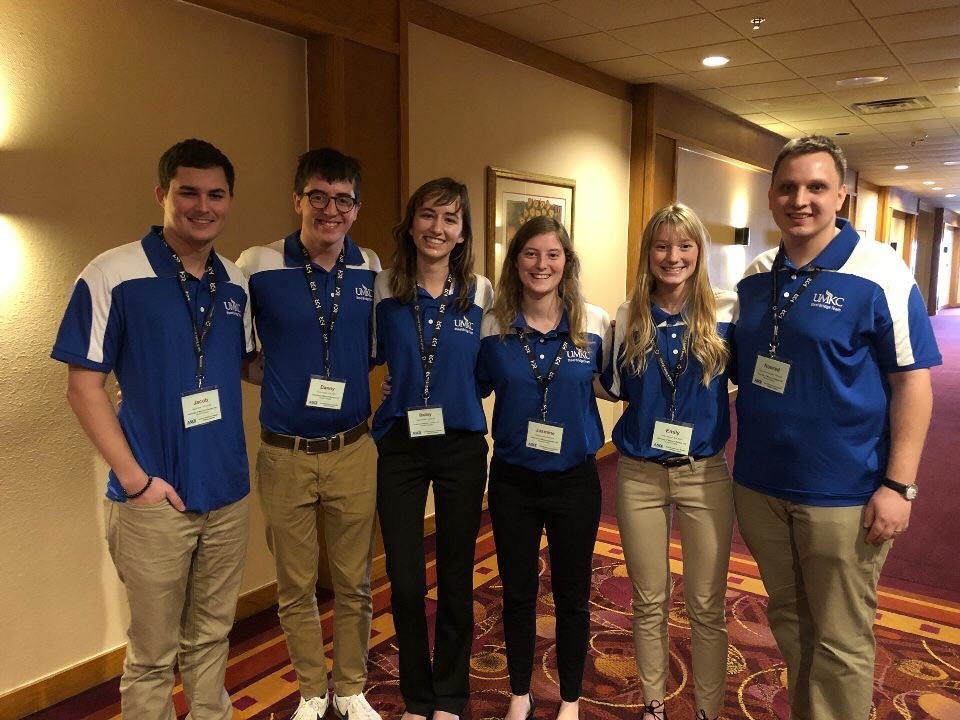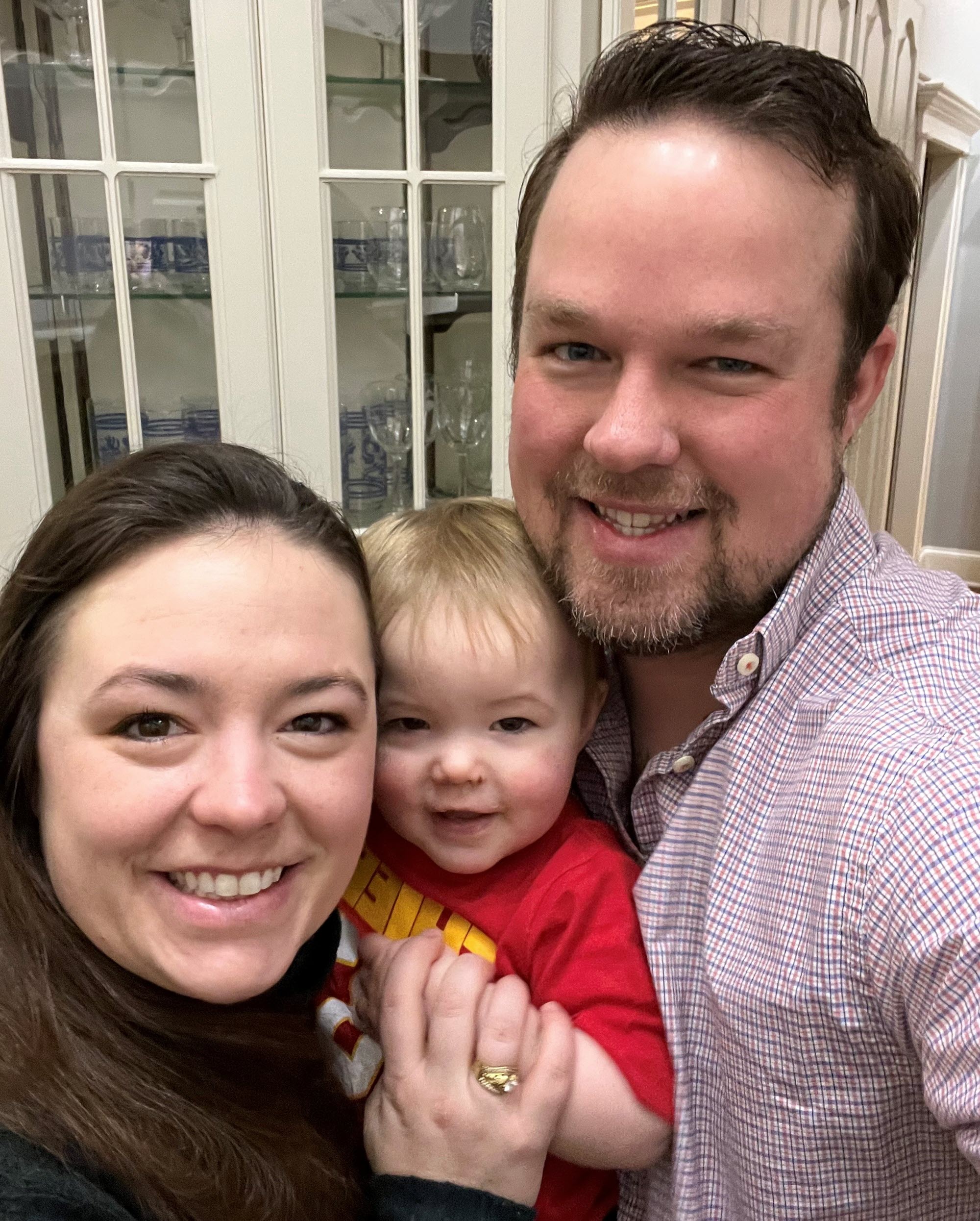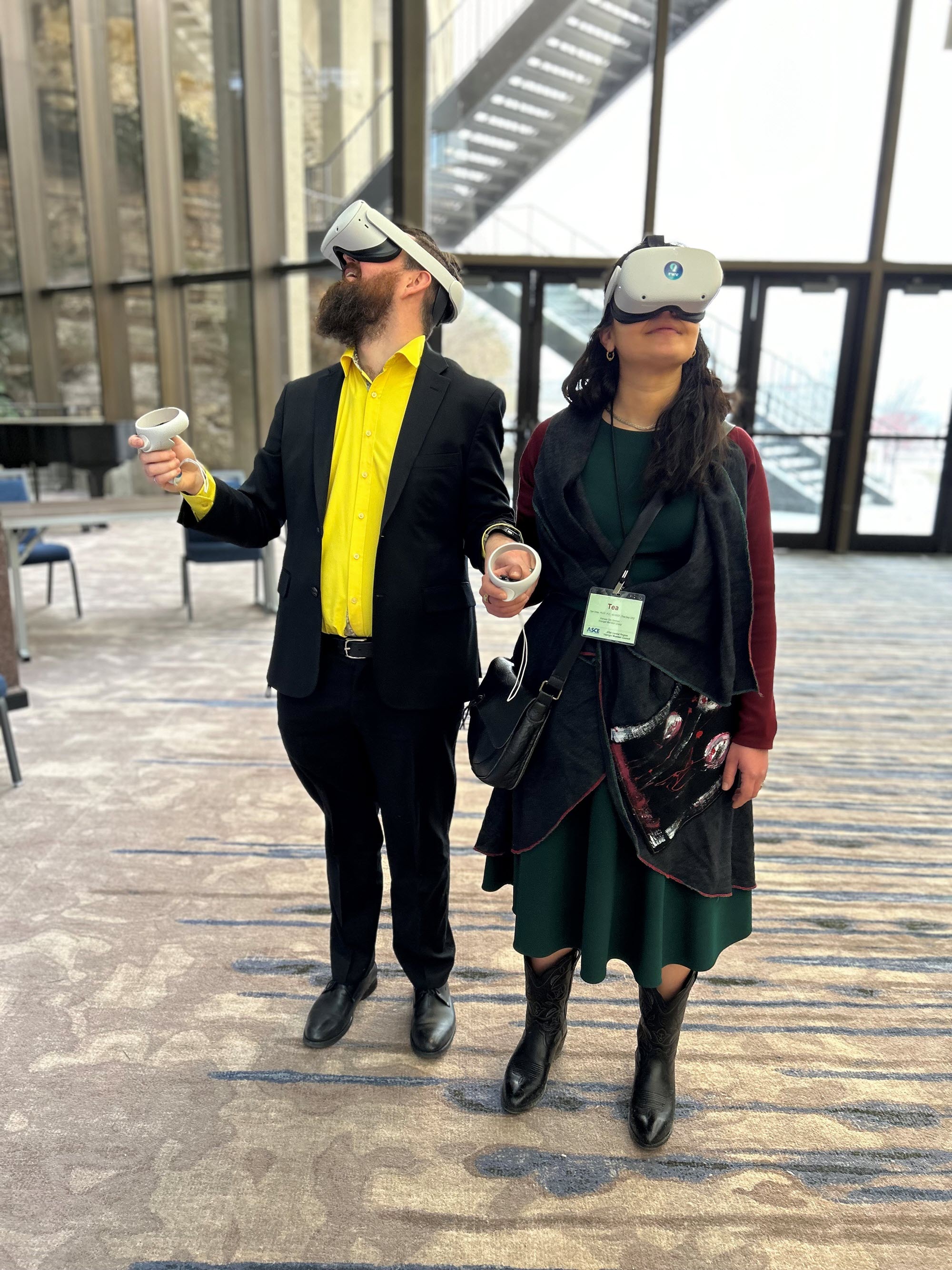There is a chart on a magnetic whiteboard that hangs on the refrigerator in Stephen and Tea Wood’s kitchen.
Or it would be more instructive to say there was a chart on the refrigerator in their kitchen.
It’s not there anymore.
“We had a chart tracking who did what chores on which day,” said Tea (pronounced Tay-uh).
Tea and Stephen are married, and both work as environmental engineers. So it shouldn’t be surprising that they run their house by spreadsheet.
“It was concluded that on some days some people do more than others,” said Tea, with a mix of smile and side-eye at Stephen. “And then somehow the tracking disappeared?”
Stephen defended the chart: “We did develop a baseline though.”
“Yes, so there was a study going on,” Tea continued. “Typically, there is making lunch, there is cleaning up the lunch, there is prepping meals, there is the dishwasher, cleaning the surfaces, keeping the house clean. Then we had a column for ‘extracurriculars.’”
“Out of scope! We actually said those were out of scope!” Stephen said, as they both laughed.
This is quintessential civil engineering couples behavior – the good, the bad, and the nerdy, if you will.
Civil engineering requires a particular skillset, perhaps even a particular mindset. What happens then when you put that particular mindset times two in the same relationship?
This Valentine’s Day, the Civil Engineering Source endeavors to find out. Are civil engineers romantically compatible with other civil engineers.
The most complex engineering equations – or even a Tea and Stephen spreadsheet – can’t solve the mysteries of love. But we spoke with three civil engineering couples, who live and work in Kansas City, to at least take a crack at sorting things out.

Plenty to talk about
Tea and Stephen met as students at Texas Tech University in a groundwater transfer phenomena class. They married three years later, moved to Kansas City in 2022, and now serve as directors on the ASCE KC Younger Member Forum board.
Holly and Andrew Robertson met at a work function in 2015 – they worked for the same company but in different offices. That party led to a common friend group which led to ASCE activities which led to their wedding in 2020 and a baby daughter, Hazel, 13 months ago.
Bayley Brooks and Danny Hotson met as ASCE student chapter members at the University of Missouri–Kansas City. Six years later, they’ve started their respective careers as civil engineers, and they have a wedding planned for the fall.
Six civil engineers. Three couples. Plenty of common ground.
For starters, no one can talk to a civil engineer quite like another civil engineer can.
Bayley and Danny fill their home with stories about the municipal projects they each are working on across different points of the civil engineering spectrum – she from the water resources point of view, he usually from the transportation side.
“When there are problems or issues at work, we get to come home and talk about the details,” Danny said. “It’s not a surface-level conversation.”
Whereas a non-civil engineering friend or partner might be able to provide a sympathetic nod of support, the civil engineering couple can speak the same language immediately.
“With two high-performing individuals, it’s really interesting to see how our careers that started at approximately the same time are developing in very different directions,” Tea said. “You can’t go into that depth with a friend, and you can’t get those check-ins every day with just anyone.”
Tea and Stephen often have those conversations on their commute when they car-pool home together. The other day they spent the drive discussing the always-popular topic among married couples: sediment dredging.
“We have these deep conversations about engineering things,” Stephen said. “It’s almost like with other people who are not engineers or who are not inside the sciences, you don’t get those conversations. We drive home, and we talk about these topics that are very detailed, and for us it’s just another day.”


Career booster
Love and ambition don’t always work in tandem. But when it comes to civil engineering couples, talking shop at home often seems to help advance careers.
Besides the ability to learn from each other during those in-depth engineering conversations, there’s the potential networking factor. Two civil engineers in the same house means twice the civil engineering connections.
“We are able to network and do business development together almost like a team effort,” Holly said. “If I meet somebody new who could be a client or, in my case a consultant that we want to hire, I can ask Andrew what he thinks about that person. He may know them. Or we could have contacts we can share for career advancement as well. So, it’s helpful.”
Bayley and Danny sometimes trade notes on similar computer programs or tools they might be using. They’ve helped each other study for the P.E. exam. It’s a positive co-work relationship that goes back to their time together as undergraduates at UMKC.
“Studying for the P.E. together, we shared resources and bounced ideas off each other,” Danny said. “It was very helpful, and I think it will help us throughout our careers too. It won’t end after the P.E.
“And we’re not competitive people, but through school we definitely pushed each other to study harder. It didn’t matter if she got a better grade or if I got a better grade, but we pushed each other. We finished with the exact same GPA.”
“Yours was actually like .01 or .02 higher,” Bayley added before Danny chimed in with sitcom-level comic timing: “I wasn’t going to say it.”

Too much in common?
The trick of course is to find balance in a relationship. Difficult for any couple, but maybe especially challenging when both people have the same civil engineering mindset.
As Tea and Stephen continue to modify their spreadsheet approach to home maintenance, Holly and Andrew employ a method that is maybe even more “project-manager-y.”
“We basically own the chore,” said Holly, outlining the idea they pulled from the Eve Rodsky book Fair Play. “So Andrew owns the dishwasher; I have no involvement in the dishwasher. I own the laundry; Andrew has no involvement in the laundry.
“You get a deck of cards and can distribute them between the two of you. That’s how we decided who the owner of the task is. Then we created a standard operating procedure for the task and a standard of care.”
Bayley and Danny separate work around the house based on who is skilled at what. It’s not clear, though, if Danny recognizes the potential flaw in this system.
“I claim Danny’s so good at sweeping the floors because I hate sweeping the floors,” said Bayley laughing. “I just say he’s so good at it.”
In all seriousness, understanding the nature of civil engineering schedules and deadlines allows the two to let the workloads at home ebb and flow accordingly. Holly, meanwhile, said she thinks the common interests, activities, and skills she shares with Andrew aren’t too much; they only help. She even sees it in their approach to their ASCE membership.
“We can see each other being leaders,” Holly said. “And I think that being in a professional organization, let alone being civil engineers, you learn that the other person follows through on what they say they’re going to do. You see that they are resourceful and all the other aspects of being a leader in a professional organization, that I think is attractive in a partner as well.”

Problem solvers
Ultimately, maybe the answer to any questions of compatibility lies in civil engineers’ innate ability to fix things.
“We’re problem solvers,” Tea said. “Marriage is a lot about communication and just being honest about what you need in the moment.”
Said Stephen: “Initially in our marriage, I think we were straight up engineers. We were logical or tried to be logical about things. And whenever emotions became involved, it was like dealing with a contractor, you’re just like ‘Do it!’ But that doesn’t really work with a spouse.”
“It is very difficult to take emotions out of marriage, considering we entered a marriage due to loving each other,” Tea said. “I think taking the approach that this is a problem that has a solution, let’s talk about what we’re hoping to get out of this and if emotions are running a little bit high, perhaps we need to reevaluate how we solve this problem in the future. I don’t think there’s a single marriage that doesn’t have issues. It’s all about how to resolve them.”
Stephen continued, “It takes a lot of willingness to work. And then you realize you’re actually talking to the best person you’re ever going to work with, and that person you picked is your wife.”
So are civil engineers well suited for civil engineers in a relationship?
“I feel like civil engineers have a very special way of caring about the world and wanting to do things the public can benefit from,” Danny said. “I think that’s an embrace of the world as a whole. And I think we definitely share that, Bayley and I, and all the other engineers that I’ve met.
“Outwardly friendly and very caring and those are great qualities to find in a partner. So I would say civil engineers are good for civil engineers, but they are good for any other professional too.
“They’re the best for everyone,” Bayley said. “We’re perfect.”
Learn more about resources and programs for young engineers and find an ASCE younger member group near you.



